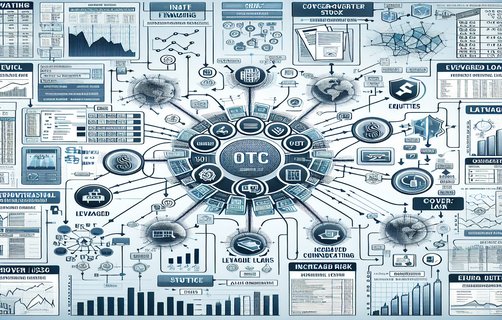
Welcome to a New Era of Financial Experimentation

In a world where financial systems evolve at breakneck speeds, mechanisms like cascade, trial simulation, and fund allocation are reshaping our perspectives on risk, opportunity, and control. This commentary takes a creative plunge into these aspects, exploring each with a blend of insightful analysis and critical commentary. As technology and finance intersect, more investors are seeking not only efficiency but also an understanding that can be backed by sound data; for instance, the World Economic Forum reported significant improvements in automated fund allocation strategies in 2020.
The concept of a cascade in financial operations is metamorphic in nature. When events layer upon one another, they create a domino effect that can accelerate or stifle progress. Diving deeper, the simulation of trials in controlled environments offers a sandbox approach to predict volatile win patterns, serving as an essential tool for institutions grappling with unpredictability. Recent studies from Harvard Business Review (2021) reinforce the idea that trial simulations reduce unforeseen risks.
Fund allocation has emerged as a key pillar in strategic financial planning. Ensuring that resources are distributed in a manner that maximizes potential exceptions and adapts to volatile win patterns is the cornerstone of modern financial systems. With technological advancements, bonus tracking and loss control measures have become increasingly sophisticated, embedding real-time data analytics into everyday decision-making processes.
The complexity of volatile win patterns cannot be understated. As market dynamics shift, the cascading effects of rapid changes call for rigorous bonus tracking techniques and robust loss control strategies. This integrated approach is not just a numerical exercise but a critical commentary on the balance between risk and reward within the modern financial context.
As we look forward, the amalgamation of these components offers a roadmap for future innovations in finance. Interactive paradigms that blend cascade effects with trial simulation methodologies provide fresh insights into fund allocation and bonus tracking. How can these advancements further mitigate risks in a high-stakes environment? What role does technology play in enhancing loss control mechanisms? Which emerging trends could revolutionize the stability of volatile win patterns? Your insights and perspectives are welcomed as we navigate this transformative landscape.
Frequently Asked Questions
What exactly is cascade in a financial context?
Cascade refers to the sequential effect where one financial decision or event triggers a series of subsequent events, often amplifying the initial impact.
How does trial simulation improve decision-making?
Trial simulation enables institutions to test and refine strategies in a risk-free environment, thereby predicting potential outcomes with higher accuracy.
Why is bonus tracking crucial in modern finance?

Bonus tracking offers real-time data on rewards and incentives, allowing for better control over potential losses while optimizing profit margins.


Comments
EmeraldFox
This article provides a refreshing take on the intricate balance between risk and reward in modern finance. It really made me think about how cascade effects can fundamentally alter market dynamics.
月影
I appreciate the depth of analysis here, especially the reference to credible sources like the World Economic Forum and Harvard Business Review. The creative style keeps the content engaging!
TechGuru
The discussion on trial simulation and bonus tracking was enlightening. The interplay of these financial mechanisms is more profound than I initially thought. Looking forward to more such analyses.